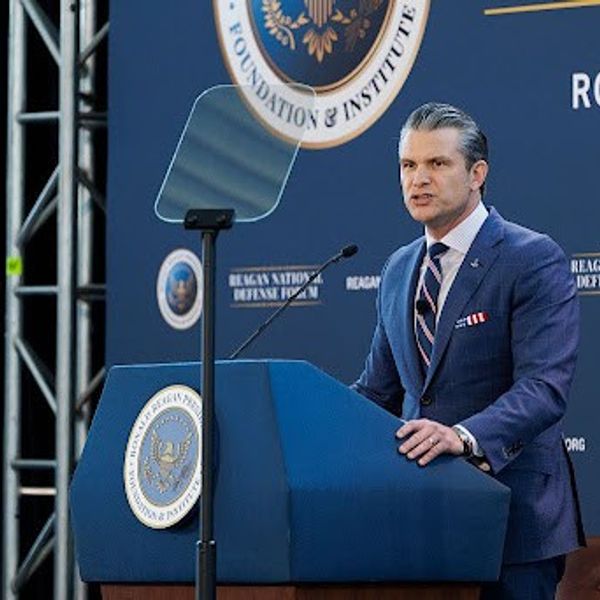The Cipher Brief was recently invited to take part in the University of New Mexico’s Intelligence Symposium, covering a number of national (and international) security issues.
We took the opportunity to speak with UNM’s Director of the Global and National Security Policy Institute (and Cipher Brief expert) Emile Nakhleh, about the evolving terrorist threat, and just how concerned we should be about recent trends.
Nakhleh is a retired member of the CIA’s Senior Intelligence Service and is a widely-respected expert on Islamic radicalization, terrorism and the Arab states of the Middle East.
The Cipher Brief: Give us an overview of how you have seen the terrorism landscape evolving over the past 12 months.
Nakhleh: At least four developments have occurred in the past year on the terrorism landscape. ISIS has lost its Caliphate territory in Syria but continues to promote its intolerant, violent ideology. Second, ISIS has moved from the local to the global. Although it’s lost its territory in Syria and Iraq, it has spread its presence globally—from Sinai to Yemen and from the Sahel countries to Afghanistan and Indonesia. Third, international terrorist groups—whether al-Qa'ida, ISIS, or their affiliated organizations—have been unable to conduct major or spectacular operations against the American homeland or American interests or personnel overseas. The fourth and perhaps most ominous development has been the rise of right-wing, white nativist or nationalist terrorist groups against religious and ethnic minorities, both in the U.S. and globally.
The Cipher Brief: Which are the broader (global) terrorist threats that the U.S. should be paying more attention to?
Nakhleh: The globalization of ISIS and the regionalization and localization of al-Qa'ida remain two major concerns over the next several years. The second major threat is the technological war that adversarial, or not so adversarial, states are waging against America's corporations, government and semi-government entities and academic institutions for the purpose of stealing intellectual property, research discoveries, and sensitive information. These aggressive tactics, especially by the Chinese military and intelligence services, are also targeting American academics, researchers, and scientists for the purposes of espionage and collaboration. China, of course, is not the only country engaged in such aggressive clandestine activities.
The Cipher Brief: What do you make of ISIS? With recent news of a U.S. success against the organization, how will they most likely regroup?
Nakhleh: The U.S. and its Kurdish partners in Syria have succeeded in dismantling the ISIS territorial caliphate, but unfortunately, the ISIS-al-Qa'ida ideology remains intact. And herein lies the danger. Several factors are driving and even empowering such an ideology. They include in my opinion: growing collaboration between the Trump administration and strongmen, autocrats, and nativist movements across the globe; rising Islamophobia in the United States and other Western countries; vicious attacks by Trump and some of his supporters in Congress and across the country on Muslim Congresswoman Ilhan Omar, for her innocuous and perhaps poorly worded, comment on 9/11; restrictive immigration policies in the U.S. and other Western countries directed specifically against Muslim refugees and immigrants; continued repression by autocrats—including in Egypt, Saudi Arabia, Bahrain, and elsewhere—against their dissidents; and Israeli right-wing government policies aimed at disenfranchising Palestinian citizens and their aspirations for statehood.
The Cipher Brief: How concerned are you about the right-wing terror threat in the U.S. and do you believe it will continue to evolve?
Nakhleh: I am very concerned about this phenomenon. For years, the promoters of right-wing hate ideology in the United States have been on the fringe of American politics. I believe President Trump has given them voice and has thus empowered them to come out in the open and become mainstream. Republican leaders in the United States Congress have been silent on this divisive issue and have not called the President out on it.
Read more from Emile Nakhleh in The Cipher Brief…













